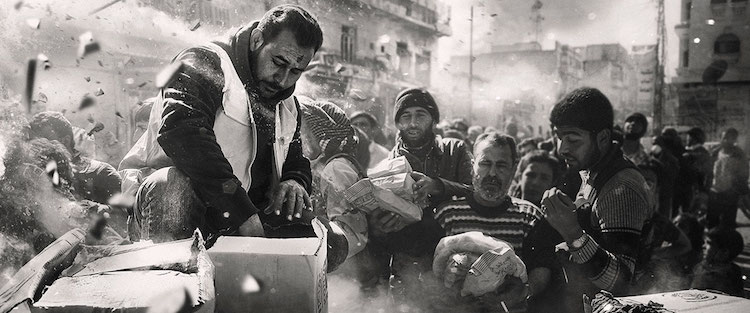By J Nastranis
NEW YORK (IDN) – Fifteen years ago, a bomb attack on the Canal Hotel in Iraq’s capital Baghdad killed 22 humanitarian aid workers, including the Special Representative of the UN Secretary-General for Iraq, Sergio Vieira de Mello. The Brazilian United Nations diplomat had been working for the world body’s humanitarian and political programs for more than 34 years.
“The Canal Hotel bombing was,” according to Secretary-General António Guterres, “a massive loss for the United Nations and the humanitarian community, and it marked a turning point for the need to increase the protection of humanitarian operations in Iraq and worldwide.”
Five years later, UN General Assembly Resolution A/RES/63/139 established August 19 as World Humanitarian Day with a view to strengthening the coordination of emergency humanitarian assistance while also honouring aid workers that have lost their lives in the cause of duty.
The resolution highlights the importance of raising public awareness about humanitarian efforts and the necessity of international cooperation for effective humanitarian assistance worldwide. All the more so because since the tragic day in 2003 more than 4,000 aid workers have been killed, injured, detained or kidnapped. That is an average of 300 fellow humanitarians killed, detained or injured every year.
In 2017 alone, 139 aid workers were killed, 102 were wounded and 72 were kidnapped in the line of duty. This marks the fifth consecutive year in which more than 100 humanitarians lost their lives on the job, and it is the highest recorded annual death toll since 2013, when 156 humanitarians were killed.
“It is unconscionable that civilians and the aid workers who are trying to help them are killed and maimed in conflict zones with utter impunity. We need this to end,” said Under-Secretary-General for Humanitarian Affairs and Emergency Relief Coordinator Mark Lowcock.
In 2017, of the 42,972 people reportedly killed or injured by explosive weapons, 31,904, or three out of every four victims, were civilians – a 38 per cent increase from 2016. In his recent Protection of Civilians report, the UN Secretary-General noted that more than 26,000 civilians were killed or injured in attacks in just six conflict-affected countries in 2017: Afghanistan, Central African Republic, Democratic Republic of the Congo, Iraq, Somalia and Yemen.
“Reversing the high numbers of civilian casualties in conflicts will require sustained advocacy,” Guterres noted in a message commemorating the fifteenth anniversary since the attack on the UN and aid workers in Baghdad.
Besides, around the world, conflict is forcing record numbers of people from their homes, with over 65 million people now displaced. “Children are recruited by armed groups and used to fight. Women are abused and humiliated. As humanitarian workers deliver aid and medical workers provide for those in need, they are all too often targeted or treated as threats,” the UN Chief noted.
Governments and non-State armed groups have clear legal obligations to protect civilians and civilian infrastructure, protect aid workers and ensure the safe and unimpeded passage of supplies in armed conflict, Under-Secretary-General for Humanitarian Affairs and Emergency Relief Coordinator Lowcock said in a statement on August 17. “It is imperative that we hold men with guns and power accountable when civilians and aid workers are illegally targeted.”
More than 2 million people participated in the #NotATarget campaign in 2017, he added. Building on that success, the UN and humanitarian partners launched a ‘living petition,’ calling on world leaders to take action to protect civilians and aid workers.
Global citizens are asked to ‘sign’ the petition with their selfies through a custom website that innovatively transforms their 2D selfies into 3D portraits of solidarity. Citizens’ faces are being displayed on an installation that was unveiled at UN Headquarters on August 17. The installation will remain in place throughout the UN General Assembly, which begins on September 18.
“The thousands of faces that make up the living petition will be on display to remind world leaders of their legal obligation to protect civilians in conflict,” Lowcock said.
Guterres called on global leaders “to do everything in their power to protect people caught up in conflict” and called on them “to join our campaign at worldhumanitarianday.org to show that civilians are #NotATarget. “Together, we stand in solidarity with civilians in conflict, and with the humanitarian workers who risk their lives to help them,” he declared. [IDN-InDepthNews – 18 August 2018]
Photo credit: UN
IDN is flagship agency of the International Press Syndicate.
facebook.com/IDN.GoingDeeper – twitter.com/InDepthNews

